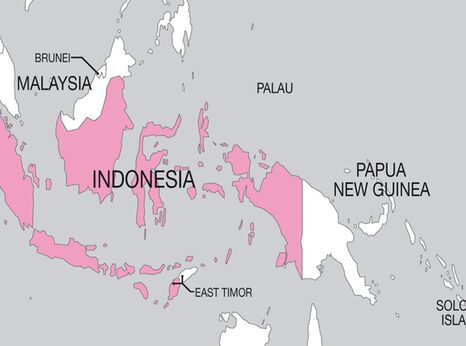Indonesia: Lecturer sentenced for Whatsapp message

In March 2019, Saiful Mahdi, a statistics lecturer at the faculty of math and science at Syiah Kuala University in Aceh Province, sent a message criticizing the result of a civil servant test for engineering faculty lecturers in a WhatsApp chat group. Among his messages, he stated, “I have received sad news about the death of common sense in the leadership ranks of the engineering faculty during the last civil servant test,” and “Why is a faculty that was once so glorious now so faint-hearted?”
His wrote the message in response to a civil servant test held in late 2018 as a recruitment for lecturers at the university’s faculty of engineering. After the test, Saiful Mahdi heard a suspicion of irregularities in the selection process from a lecturer at the engineering faculty, who had worked there for two years and joined the test to obtain his civil servant status. He informed Saiful Mahdi that a test taker who reportedly did not meet administrative criteria had been able to join the selection process and later passed the test, while he himself was declared fail despite having scored the highest among other test takers during a competency test.
Saiful Mahdi, who had worked at the university for 25 years, analysed the scores of the test takers from the faculty of engineering and later concluded that there were irregularities in the scoring that should be reviewed. He later posted his criticism towards the selection process in the WhatsApp group, which comprised around 100 lecturers. His message circulated among the university’s employees and eventually reached the engineering faculty’s dean, who was not part of the chat group.
The dean reported Saiful Mahdi to the university’s senate, which later summoned him for clarification on 18 March 2019. After clarifying the issue, the senate sent a letter to Saiful Mahdi on 6 May 2019 asking him to write an apology letter to the leadership ranks of the engineering faculty and stating that he had violated the ethics code by making the statement. Saiful Mahdi, however, refused to do so and argued against the senate’s decision since he had never been examined in an ethics hearing for the case.
On 4 July 2019, Saiful Mahdi was summoned by the Banda Aceh Police as a witness in a defamation case reported by the engineering faculty’s dean. Following an investigation, he was named suspect and charged under Article 27 (3) of the Information and Electronic Transactions (ITE) Law for allegedly defaming the dean, even though Saiful Mahdi never mentioned any names in his WhatsApp message. The case was brought to trial, and on 21 April 2020 the Banda Aceh District Court sentenced him to three months in prison and a fine of Rp 10 million despite no clear evidence proving he had violated the law. He later filed an appeal against the verdict to the Banda Aceh High Court, but it was rejected. On 29 June 2021, the Supreme Court rejected the cassation plea submitted by Saiful Mahdi and upheld the lower court’s guilty verdict.
Saiful Mahdi and his lawyers are currently in process of preparing for a review petition to the Supreme Court to challenge the cassation verdict. They also plan to send an amnesty request to President Widodo. Under Indonesian law, the President can only grant an amnesty after seeking consideration from the advice of the House of Representatives. The President is able to grant an amnesty without official request from the convict.
The ITE Law, including Article 27 which contains an anti-defamation provision, has increasingly been used to criminalize people who peacefully exercise their right to freedom of expression using electronic means, such as writing messages in messenger platforms or sharing opinions in social media. The Indonesian authorities have also misused the draconian articles in the ITE Law to criminalize peaceful activists, journalists, and human right defenders who criticize the government. From January to June 2021 alone, Amnesty International recorded at least 39 individuals named suspects by the police for allegedly violating the ITE Law.